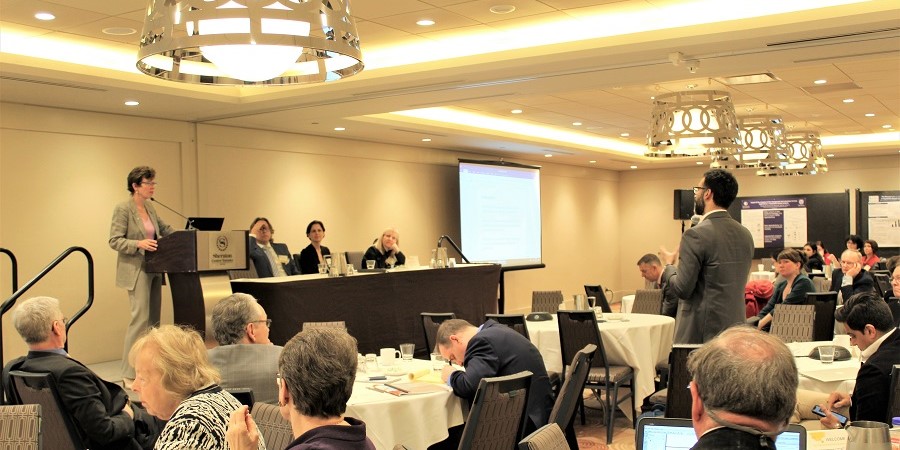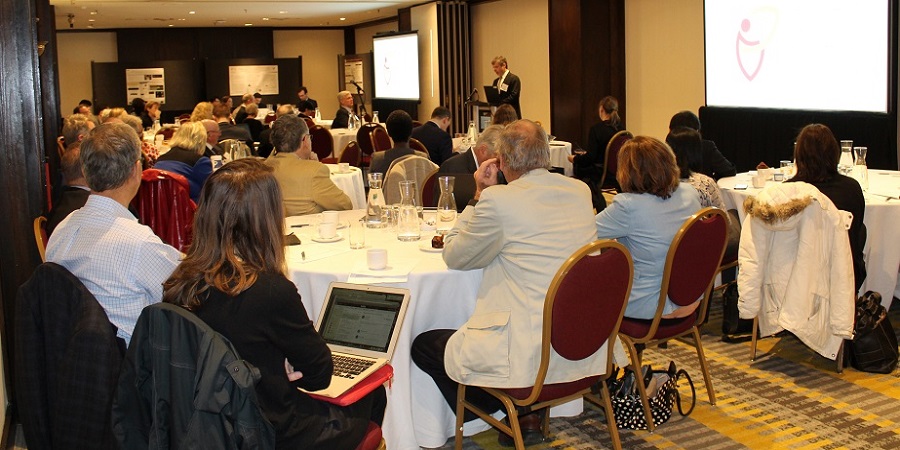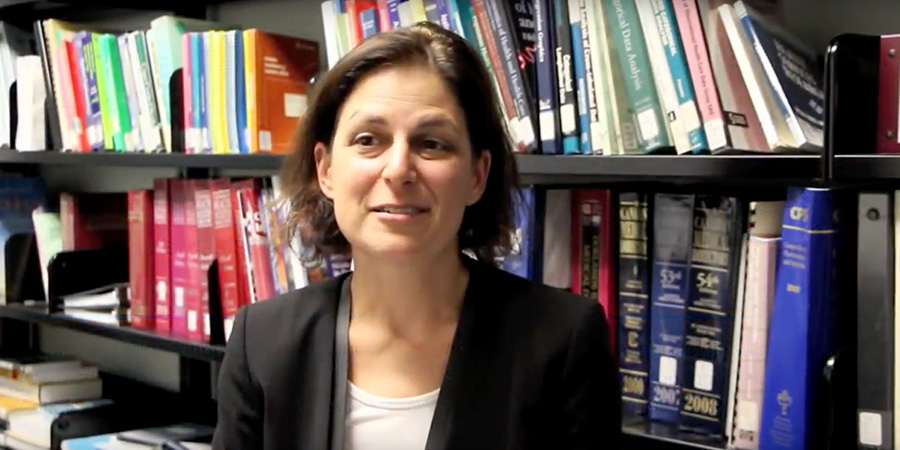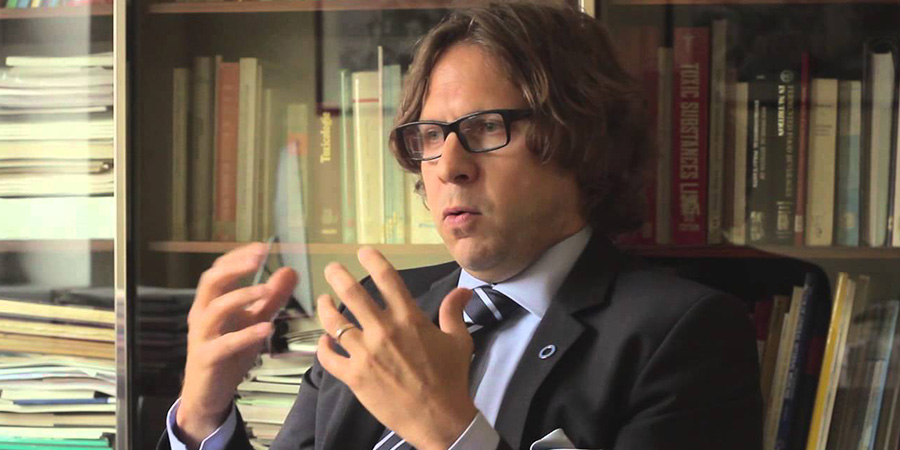Physicians and researchers representing different disciplines, organizations and career stages attended PSI Foundation’s annual meeting on April 24, 2019 in Toronto. The meeting, with its focus on knowledge translation (KT), featured presentations and roundtable discussions, as well as networking opportunities for those who attended.
Knowledge translation is meant to improve outcomes for patients
Using different examples of research, the morning’s speakers demonstrated the challenges and barriers associated with KT, but also its importance in improving patient outcomes.
Dr. John Sievenpiper, a physician-scientist at St. Michael’s Hospital and the 2015 Graham Farquharson Knowledge Translation Fellow, spoke about how research and KT have helped to inform clinical practice guidelines around dietary recommendations related to sugars and cardiometabolic health. With current popular diets favouring extremely low sugar consumption, Dr. Sievenpiper’s team performed meta-analyses of trials and observational studies examining the role of sugar-sweetened beverages and other sweet foods (including fruit juice, fruit and yogurt) in metabolic and cardiovascular diseases.
The evidence suggests that while sugar-sweetened beverages have adverse associations with health, the association for other foods is not as simple. These studies have informed clinical practice guidelines to move away from dietary recommendations focused on one nutrient or a one-size-fits all approach to something more tailored: the best diet is the one that patients will adhere to.
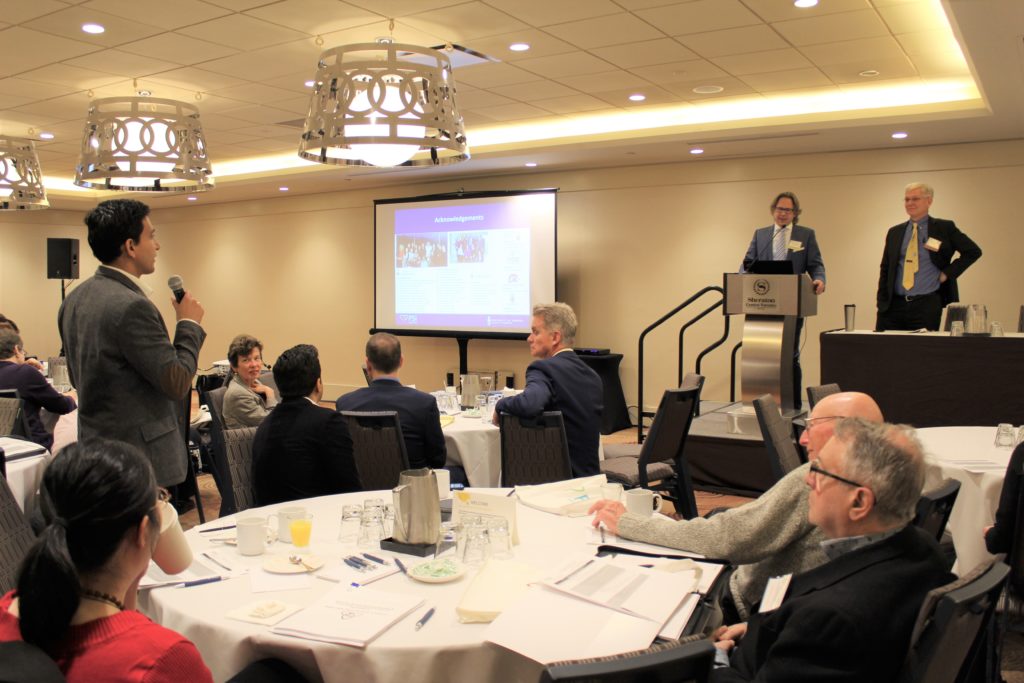
Dr. Andrea Gershon, a scientist and respirologist at Sunnybrook Health Sciences Centre and the 2013 Graham Farquharson Knowledge Translation Fellow, spoke about her research to improve care for people with chronic obstructive pulmonary disease (COPD) as an example of the KT cycle. She and her team identified knowledge gaps, for example the lack of quality measures for COPD, then researched existing knowledge through literature reviews and expert panels.
Diagnosis of COPD provided an example of another part of the KT cycle – assessing barriers and developing ways to overcome them. While pulmonary function tests (PFT) are the gold standard for diagnosis of COPD, only 35% of diagnosed patients actually received one. Her team identified the barrier – a belief that PFT does not improve outcomes – and found evidence from population and health databases that showed that patients who received PFT did have better outcomes. They are now using this knowledge to develop strategies targeting both clinicians and patients to increase rates of PFT.
With these two specific research examples in mind, Dr. Sharon Straus, Director of the KT Program at St. Michael’s Hospital and a professor at the University of Toronto, discussed different KT strategies and potential barriers that can hinder the process. Key barriers include:
- The sheer volume of knowledge. With thousands of papers published every day, it’s impossible for a practising physician to keep up.
- Strategies that only target individual physicians. Instead, strategies need to include the provincial health care system and workflows at individual hospitals.
- Lack of evaluation and sustainability. These ideas should be incorporated into KT strategies right from the beginning.
In the roundtable discussion that followed, participants emphasized the importance of understanding and engaging the end user when developing KT strategies, the need for institutional cultures that support changes to workflows and processes, and the importance of learning about KT and opportunities for mentorship earlier in medical education, while recognizing that KT is its own specialized field. Finally, patient engagement in the research process was discussed, including considering them as stakeholders in grant review panels and as end users of the research.
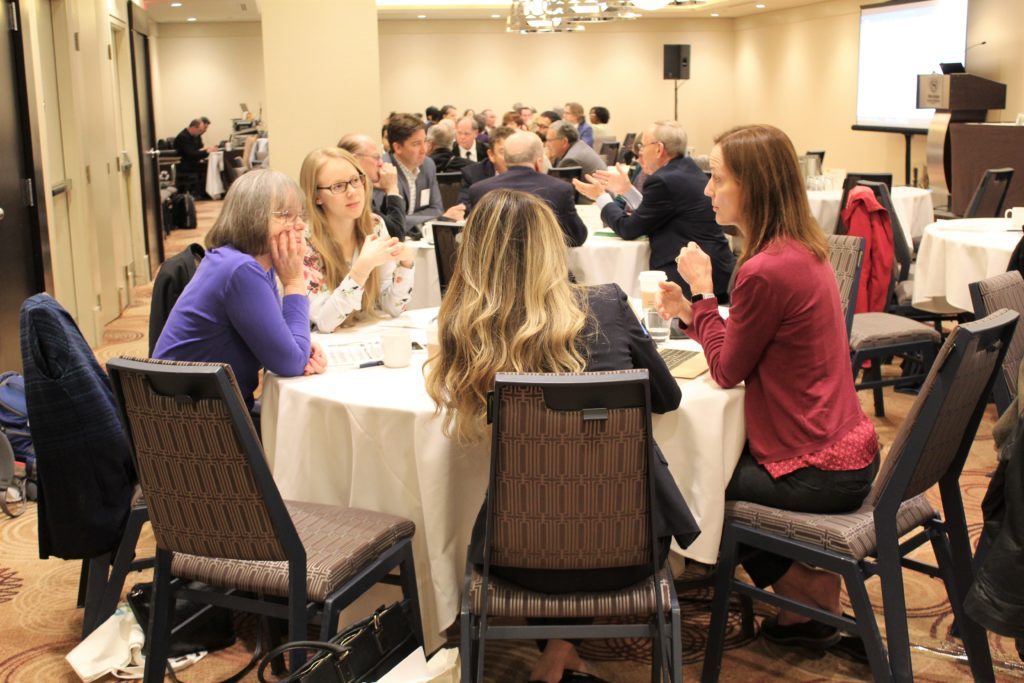
Business meeting features highlights of PSI’s history and plans for the future
The afternoon began with the Foundation’s business meeting, with reports from the committee chairs included in the Annual Report. Board member Dr. Deborah Cook provided a history of PSI Foundation and statistics about the number and types of grants funded, and Dr. Bill Hemens, President of PSI’s board, provided an update on PSI’s 50th anniversary plans for next year, which include the establishment of a mid-career award and a Knowledge Translation Fellow in Mental Health and Addiction, and hosting the Health Research Alliance’s meeting in Toronto in September 2020.
With this context, most of the afternoon consisted of roundtable discussion about ideas to help improve PSI Foundation. Many participants emphasized the importance of PSI’s community grants and suggested ways to improve support for community-based physician-researchers, as well as provided ideas to help connect and engage researchers, physicians and medical students.
PSI thanks all of the participants of the annual meeting for attending and contributing to the productive discussions.

